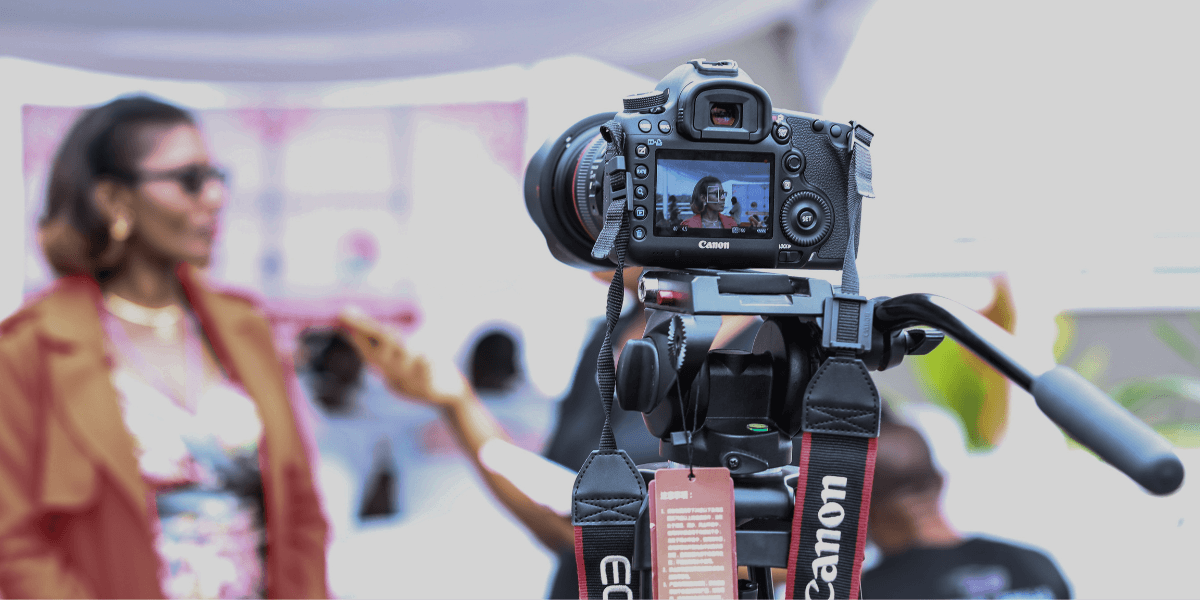Your brand has secured a media interview with a journalist from a national publication, but now what? You may start to feel excited and overwhelmed, not knowing what to expect. Don’t panic! A great interview should be beneficial for both you and the journalist.
Why are media interviews important?
Media interviews are a major tool to showcase your brand and expertise. Providing an interviewer with transparent and insightful responses is key to resonate with your current audience and reach new potential customers. When interviewing with a journalist, you are not just sharing your message with them, but sharing your message with their entire publication’s audience, which can potentially reach millions of readers. Journalists like to speak with a brand representative so to gather first hand information that can be used as quotes and expert commentary to make their article more credible. Here are five tips to prepare you for a successful media interview so you can lead the interview feeling confident.


1. Know Where and When the Interview Is
First things first, make sure you know the basics on where and when the interview will take place. Is it written, over the phone, on Zoom, or in person? If it is a broadcast interview, is it live or pre-recorded? If it is in person, is there a specific place you should park and a specific place to check-in? When you agree to a media interview, make sure you know exactly how it will take place so you can ask for the appropriate details and avoid any misunderstandings about where or when the interview will occur.
2. Understand Why You Are Being Interviewed
The reason for your interview may feel obvious, however, it is important to consider what specific angle the journalist may take with the information you give them. Consider what subjects and angles the publication writes about. Does the journalist write for a business, lifestyle, local, or national publication? A journalist for a business publication may ask you more fact-based questions on numbers and data of your organization, whereas a lifestyle publication may approach the interview with more casual questions, asking the general details of the respective subject. You also want to know why you are being interviewed to prepare for any challenging or uncomfortable questions the interviewer may ask.
3. Prepare For Your Interview
Even if you know your product, brand, or organization like the back of your hand, it is important to prepare for every single media interview. Consider the tone of the interview. Are you approaching a media interview to address a crisis situation, provide commentary on a trending subject, or share details on a new company or product launch? Ask for questions or a general direction of the story before the interview to ensure you are not approached with any unexpected questions. Not every journalist can share a list of questions before an interview, so if you don’t receive any, make a list yourself or ask your public relations team to brainstorm a list of potential questions. Having answers prepared ahead of time will help prevent you from missing any important details or talking points during your interview. Review any press materials available for your organization – including press releases, images, videos, website links, and social media info – as a helpful resource when preparing your interview answers.
4. Perfect Your Key Message
Getting your key message across is the most important part of any media interview. Before you go into a media interview, understand primary objective. Consider what readers, listeners, or viewers should think or do as a result of your interview. Is there something for them to purchase or follow? End the interview by restating any important information so that is the last thing in the mind of the interviewer and their audience.
5. Follow up and Be Patient
After your media interview, you or your public relations team may want to reach out to the journalist to thank them and see if they need any additional information. The journalist may reach out to you for clarification or follow up questions on what was discussed during the conversation. If you do not hear from them, follow up after three business days and send the journalist any relevant press assets, especially those that may provide details not shared during your interview and can assist in helping them file their story. Often times, journalists will not reach out to you confirming the story is published, so consider creating a Google Alert to receive publishing notifications in real time. Note: Sometimes it can take up to six months for an article to be published, especially with publications that have a lengthy review process, so be patient! Once the article is published, republish it on your organization’s social media with the journalist tagged in the copy. This can help facilitate an ongoing media relationship with the journalist and help drive views among your existing audience.
Media interviews may seem more nerve wracking than they actually are. Remember, journalists receive dozens of requests for interviews and they chose you because there is valuable information and insight you can offer their publication and readers. Whether someone on your team pitched an idea to a journalist or that they found you on their own, they are interviewing you because they believe you can provide them with information that will complete their story.
Want to get your organization in front of top tier journalists and receive more media interest for your brand? Discover how PitchBox Media can help your brand gain national media attention through quarterly themed media shipments.

